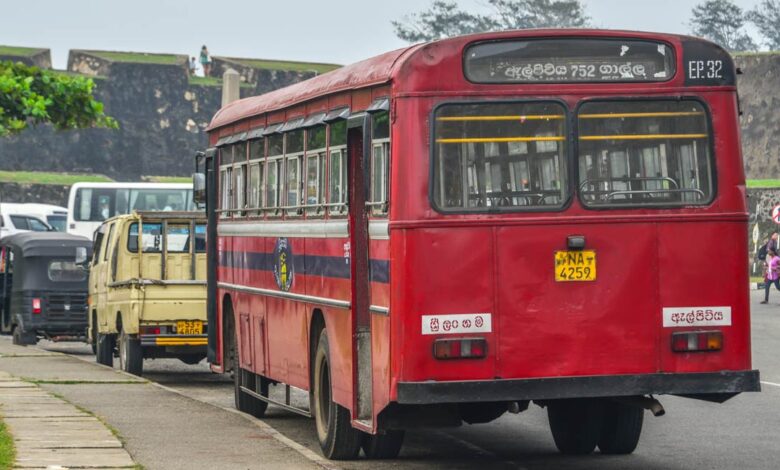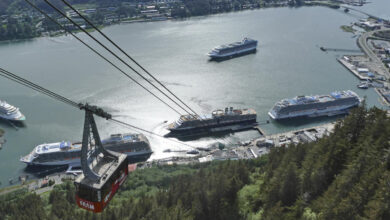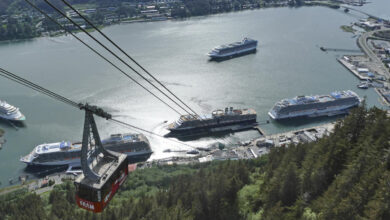Column | Seeing Kerala in Sri Lanka

[ad_1]
On a lazy late-June afternoon in a leafy Colombo suburb, I wait to watch Sri Lankan auteur Prasanna Vithanage’s ‘Paradise,’ a film starring Roshan Mathew, Darshana Rajendran and Shyam Fernando. The experience of simultaneously listening to Malayalam, Sinhala and English is more than enticing. The feeling of these long-separated cultural cousins reuniting on the silver screen!
Sri Lanka has been a home away from home for me for the greater part of the last two decades. There’s the familiarity of the landscape, the architecture and food, and at the same time, the clear understanding that even though I blend in this beautiful land effortlessly, I am technically a foreigner.
Not enough research has been done on the deep-rooted cultural and historical links between Kerala and Sri Lanka, but for someone who is well versed with both places, it’s easy to see the intangible.
Both places have espoused strong Socialist ideals, with very similar results. Look at human development indices in Sri Lanka and Kerala and there is proof that universal healthcare and education are pivotal for progress.
These two places don’t just share good traits, however. The propensity for violence, alcohol abuse and the eagerness to strike, strike and strike further! There are no industries here, the Malayali says about his state, the same way a Sri Lankan says about his country. There is also the dream of working abroad and remitting the money home and building a dream home closer to retirement.
Now, just like the new wave of Malayali migration is of students going primarily to Western countries with the aim of settling there, young Sri Lankan professionals and entrepreneurs see opportunities in the same parts of the world. Of course, there is a particular fascination for Australia, and Melbourne in particular for those from the Emerald Isle.
One does not have to dig deep into the societies of both places to know about the fascination with the occult, sorcery and superstitions. As mentioned in this column in 2022, Malayali astrologers and magicians are in great demand here in Sri Lanka.
Kerala occupies the popular imagination of Sri Lanka more than the other way around. Perhaps, it’s because of the way Malayalam literature has found its walk to the island in translation and Sri Lankans see so much of their own culture and landscape in Kerala through books.
The works of great writers like Martin Wickramasinghe would find a willing audience in Kerala. I remember visiting the writer’s home (converted into a museum) in Koggala in the southern part of the island in 2010. The caretaker of the estate, when hearing of Indians coming there, came to have a word with my mother and me. When we mentioned that we were Malayalis, his eyes lit up and said we were first cousins and he was happy to welcome us!
I also strongly feel that the stories of the great children’s story writer Sybil Wettasinghe should find their way to Malayalam. Kuda Hora or Umbrella Thief is a story that every small child in Kerala would love to have read to them by a parent.
Seeing maroon Sri Lanka Transport Board buses driving past green paddy fields with coconut trees, one simply cannot help but be reminded of our own red KSRTC “aanavandi (elephant vehicle)” buses on a similar Kerala landscape.
Mangalore-tiled temples, simple white attire, the lighting of oil lamps, annual festivals involving domesticated elephants…. The similarities in culture and traditions seem a little too close just to be coincidental.
Sri Lanka as a country also gives Malayalis an idea of what would have happened if princely states like Travancore managed to become independent countries. There are obvious advantages to being a small administrative unit, making it easier to govern. But then again, as lovely a country as Sri Lanka is, for the erstwhile Travancore and Cochin states, being a part of India is a privilege. The languages, the food, the diverse and varied landscapes from the desert to the Himalayas, makes it one of the greatest countries in the world.
Sri Lanka, like Marco Polo is believed to have said, is the finest island of its size in the world, while Kerala, with its similarities to Sri Lanka, is a valuable part of the larger mosaic that makes up India.
(Ajay Kamalakaran is a multilingual writer, primarily based in Mumbai)
[ad_2]
Source link




